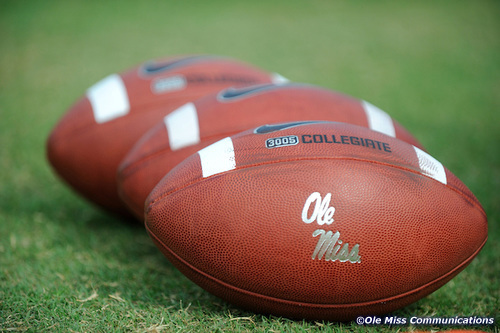Sports
SEC Country: Looking at the 2016 College Football Rules Changes
Courtesy of David Collier and SECCountry.com
The countdown to the 2016 college football season continues, but we all know the last seven weeks will feel longer than they are.
There are plenty of things to do to get yourself prepared for the upcoming season, including studying your favorite team’s depth chart, predicting which freshmen will have a breakout season and checking up on what your biggest conference rivals have been up to this offseason.
But if you’re looking to dig deeper into your preparation for the fall and find other ways to make the days go by, check out the new rule changes you’ll want to be aware of before screaming at your TV about a call that goes against your team.
Just to warn you, some of these can get complicated. Here we go:
Coaches can be ejected
Let’s be real. There’s nothing quite like being at your favorite basketball or baseball team’s games and seeing the opposing coach get thrown out of the game. Whether it was constant chirping to the officials or a questionable call that led to an outburst, nothing gets a crowd going like a coach getting tossed.
Well now, we can have that fun in college football too.
Just like players, coaches will be ejected from a game if they receive two unsportsmanlike penalties, so they better be on their best behavior while roaming the sidelines this season.
It remains to be seen if a referee will actually pull the trigger with a second unsportsmanlike penalty when a coach gets a bit out of line, but can you imagine an SEC stadium going crazy if the road coach gets ejected?
Sounds like a lot of fun waiting to happen.
Runners who give themselves up are considered defenseless
As more and more attention is paid to concussion talks and what can be done to better protect players from them, the NCAA Football Rules Committee is adding in measures to protect ball-carriers.
When a runner now slides feet first, the runner is considered defenseless, and a hit on the runner will result in a targeting penalty — meaning a 15-yard personal foul will be enforced and the player will be ejected for at least the remainder of the game.
The NFL has had a form of this rule in place, and now college football has adopted it.
There should be plenty of fiery Twitter reaction when someone is thrown out of a game on a targeting call because of this new rule, but ultimately it’s about player safety.
No more tripping the ball carrier
Ball carriers got another rule change to go their way, as defenders can no longer trip the runner to bring him to the ground.
It should be noted that the rule does not include defenders attempting to tackle a ball carrier below the waist, but instead, it includes tripping with a leg.
As long as defenders don’t stick a leg out to try to save themselves from getting out of position, everything should be OK. However, it might not be long before a call is made in a key moment in a game that gets folks in an uproar.
Replay officials can call targeting fouls
If fans didn’t hate the targeting call enough already, a new rule allowing the replay official to assign targeting fouls “where an egregious action occurred and was missed by on-field officials” should do the trick.
Hopefully, these instances will be few and far between and won’t take too long to figure out when they are called.
Clarification added to low hits on a passer
Last season, rules-makers added a rule to prevent low hits on passers who are in a “passing posture,” but there has been a clarification to that rule to make things more cut and dry.
The previous rule had an exception that included when a player appeared to attempt a “conventional tackle,” but now, the exceptions include “without making forcible contact with the head or shoulder.”
So as long as a defender doesn’t hit a passer around the knees with his head or shoulder, he should be in the clear of having a penalty called against him.
Ineligible receivers a point of concern
Although there are no rule changes pertaining to the three-yard limit regarding ineligible receivers downfield, officials have been instructed to to “stringently enforce” the rule in 2016.
That’s good news for defenses and bad news for spread offenses, which are becoming much more common throughout college football.
Blocking below the waist rules modified
With player safety in mind, the rules committee also made changes to rules pertaining to low blocks.
This fall, players who leave the tackle box are prohibited from blocking below the waist toward the initial position of the ball.
Technology becoming more common
College football is finally catching up to the times, as electronic devices will now be allowed inside press boxes and locker rooms during games. However, electronic devices will still be prohibited on the sidelines.
For questions or comments email adam.brown@hottytoddy.com
Follow HottyToddy.com on Instagram, Twitter and Snapchat @hottytoddynews. Like its Facebook page: If You Love Oxford and Ole Miss…















